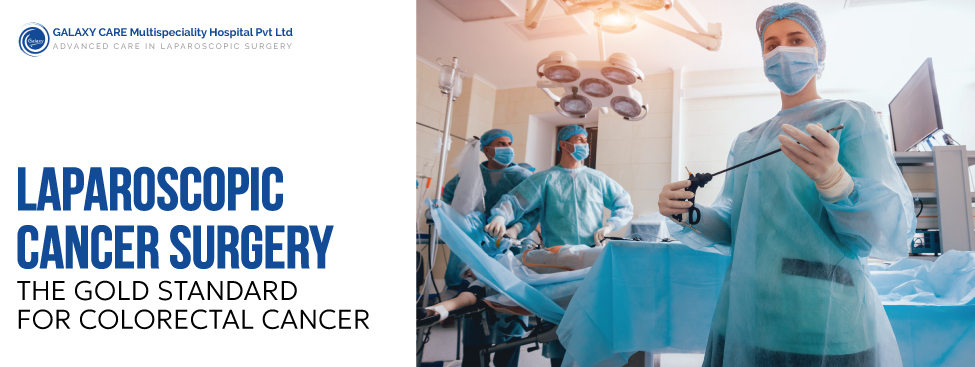
8 FAQS ABOUT SMOKING AND CANCER
Smoking is one of the largest preventable causes of cancer. Around 25% of all cancer deaths are due to smoking. If you smoke, your risk of developing cancer increases significantly. People who smoke are at a higher risk of developing many types of cancers including lung cancer, throat cancer, mouth cancer, pancreatic cancer etc. At Galaxy Care Hospital, our Best Cancer Specialists in Pune are often asked several questions about smoking and cancer risk. Here are answers to 8 most frequently asked questions about the relationship between smoking and cancer. Let’s begin!
1. How does smoking increase cancer risk?
Tobacco smoke contains over 70 cancer-causing chemicals known as carcinogens. These carcinogens can damage the cells in our body and cause them to become cancerous. When you smoke, these cancer-causing chemicals reach the lungs and other organs directly through inhaling the smoke. The cancer-causing chemicals in the smoke can damage the DNA and genes within cells and cause malignant mutations that lead to cancer over time. Smoking is directly linked to causing around 90% of lung cancer cases.
2. What are the different types of cancer linked to smoking?
Smoking increases the risk of developing several types of cancers including –
- Lung cancer – Smoking causes around 90% of lung cancer cases. The risk increases with the number of cigarettes smoked per day and years of smoking.
- Throat cancer – It includes cancers of the larynx, pharynx, and mouth. Heavy smokers are at a higher risk.
- Esophageal cancer – It affects the food pipe. Risk increases with smoking.
- Pancreatic cancer – It impacts the pancreas. Smokers are twice as likely to develop pancreatic cancer as non-smokers.
- Kidney cancer – Smoking can lead to kidney cancer in both men and women.
- Bladder cancer – The risk increases with the number of cigarettes smoked per day.
- Cervical cancer – It can lead to cervical cancer in women, especially when combined with HPV infection.
3. How soon after quitting smoking does cancer risk start decreasing?
The risk of developing smoking-related cancers starts decreasing once a person quits smoking. Within just one year of quitting, the excess risk of lung cancer is reduced by almost half compared to a continuing smoker. Within 5-15 years of quitting, the risk levels approach those of someone who never smoked. So quitting smoking even after many years provides major health benefits in terms of reducing cancer risk.
4. Does smoking increase the risk of lung cancer for non-smokers?
Yes, exposure to secondhand smoke also increases the risk of lung cancer in non-smokers. Breathing in secondhand smoke from others who are smoking increases the risk of lung cancer in non-smokers. Non-smokers who live or work with a smoker are at an increased risk of lung cancer compared to those not exposed to secondhand smoke. So non-smokers should avoid environments with tobacco smoke.
5. Does vaping or e-cigarettes increase cancer risk like normal cigarettes?
While vaping or e-cigarettes may pose fewer health risks than smoking cigarettes, they are not completely safe either as far as cancer risk is concerned. The aerosol that users inhale from e-cigarettes can contain substances and metals that are toxic and may lead to cancer. More research is still needed to understand the long-term cancer risks from vaping. It is best to avoid both regular cigarettes and e-cigarettes to reduce cancer risk and protect health.
6. What is the link between smoking and prostate cancer?
While smoking is not considered a major risk factor for prostate cancer, some research indicates smoking may increase the risk. A few studies have found that smoking may be linked to more aggressive forms of prostate cancer that are harder to treat. However, the exact link between smoking and prostate cancer risk needs more research. There is no harm in quitting smoking to maintain a healthy prostate.
7. How does smoking affect lung cancer treatment?
Smokers who develop lung cancer tend to have poorer outcomes of treatment compared to non-smokers. If you are a smoker, quitting significantly improves your chances of lung cancer treatment. If you still continue smoking, a lung cancer specialist is less likely to recommend potentially curative surgery. It also negatively impacts the outcomes of radiation therapy, chemotherapy and immunotherapy. Stopping smoking gives your body the best chance to respond well to treatment.
8. What is the relationship between smoking and pancreatic cancer?
Smoking is a leading environmental risk factor for pancreatic cancer. Smokers face around twice the risk of developing pancreatic cancer compared to non-smokers. The risk increases with the number of years and amount smoked. Quitting reduces the excess risk over time. People who have never smoked have the lowest risk. Among current smokers, heavy smokers have the highest risk. Seek consultation from Cancer Specialists at the Best Cancer Hospital in Pune like Galaxy Care Hospital if you are a heavy smoker and facing some pancreatic issues for a while.
Quit Smoking To Save Lives
In conclusion, smoking significantly increases the risk of many cancers. Quitting smoking is one of the best things you can do to reduce cancer risk and protect your health. The experts at Galaxy Care Hospital are leaders in offering advanced cancer diagnostics and comprehensive cancer care including laparoscopic cancer surgery in Pune using minimally invasive techniques. Our highly skilled oncologists and surgeons provide the best cancer treatment and achieve excellent outcomes. Feel free to consult our cancer specialists to discuss your concerns about cancer, take diagnostic tests, and timely cancer treatment. We understand that cancer is a complex disease, and we are here to help you prevent and treat it before it becomes too late. Take action responsibly; book your consultation today!


